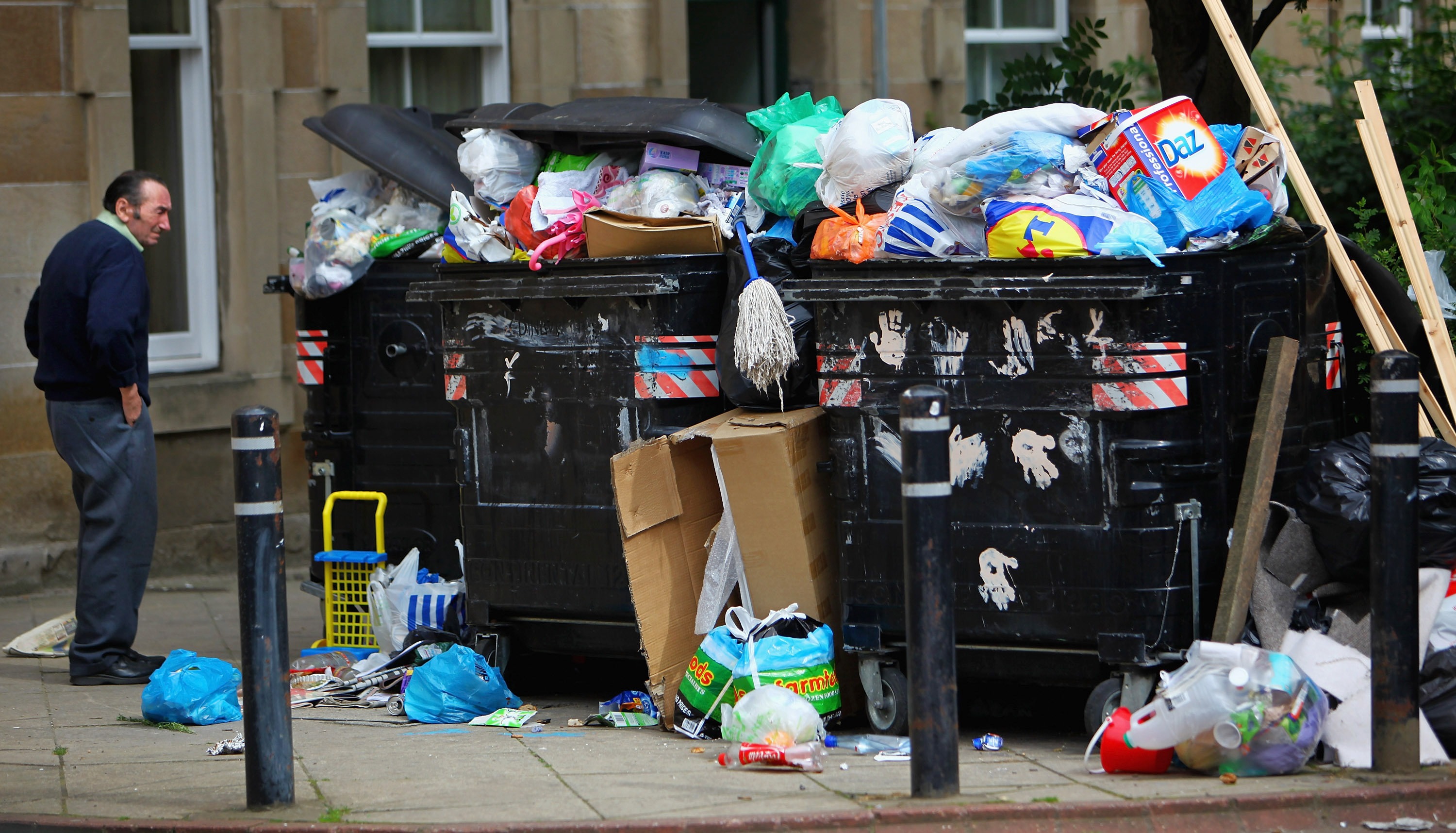The councils that risk running out of cash reserves
BBC reveals 11 local authorities on track to ‘fully exhaust’ their emergency funds within four years

A free daily email with the biggest news stories of the day – and the best features from TheWeek.com
You are now subscribed
Your newsletter sign-up was successful
Almost a dozen English councils are at risk of using up all of their emergency cash reserves if current spending trends continue, it has emerged.
According to the BBC, the Chartered Institute of Public Finance and Accountancy (Cipfa) found that 11 local authorities will have “fully exhausted” their cash savings within four years if they do not “top them up”.
The Local Government Association (LGA) says that “systematic underfunding” by the Government has left councils having to choose between either dipping into these reserves to plug funding gaps or further cutting back local services.
The Week
Escape your echo chamber. Get the facts behind the news, plus analysis from multiple perspectives.

Sign up for The Week's Free Newsletters
From our morning news briefing to a weekly Good News Newsletter, get the best of The Week delivered directly to your inbox.
From our morning news briefing to a weekly Good News Newsletter, get the best of The Week delivered directly to your inbox.
LGA Councillor Richard Watts has warned that the situation is “unsustainable” and “does nothing to address the systemic underfunding that they face”.
“Ongoing funding gaps are simply too big to be plugged by reserves,” he said.
But the Government says councils have had access to extra funding this year and are responsible for their own finances.
What are cash reserves?
A free daily email with the biggest news stories of the day – and the best features from TheWeek.com
Cash reserves - money held back for specific projects or emergencies, such as flooding - are seen as a measure of financial security. Councils across the UK manage this money by dividing it between two pots - useable reserves and unusable reserves.
Useable reserves consist of money that each council has set aside to provide services such as rubbish collection and for its day-to-day running, while the unusable reserves pot contains funds that cannot be used to provide services.
The unusable reserves hold funds that have “unrealised gains or losses”, including assets such as buildings whose value changes over time, and there “may also be commitments linked to these assets such as loans or maintenance needs”, explains the West Suffolk Council website.
“The funds held in the unusable reserves fund can only be unlocked and turned into usable money if the assets are sold,” the site says.
Why are some councils running out of money?
Under the Conservative-Lib Dem coalition government that ruled from 2010 to 2015, local councils were ordered not to “hoard” billions of pounds in their reserves.
But Cipfa has warned councils that while balancing the annual budget by drawing on general reserves may be “viewed as a legitimate short-term option”, it is “not normally prudent for reserves to be deployed to finance recurrent expenditure”.
However, cuts to government grants have left a number of local authorities facing a shortfall, with some dipping into their reserves to balance the budget. A total of 39 councils have reported having the equivalent of less than 10% of what they spent in 2017-18 available in reserve.
Professor Tony Travers of the London School of Economics told the BBC: “We did see many councils reserves increased during 2017-18, but the pressure on budgets is not going to go away and for some the need to make further use of reserves is going to be unavoidable.”
Which councils are most at risk?
The new analysis reveals that 11 of the 152 major English councils are at risk of using up all of their reserves within four years.
The hardest hit is Northamptonshire County Council, which has recorded a 91% drop in reserves and which was forced to stop non-essential spending during 2017-18.
The other struggling local authorities are Somerset County Council, Rotherham Council, Thurrock Council, Croydon Council, Stoke-on-Trent City Council, Sutton Council, Knowsley Council, Greenwich Council, Medway Council and the Council of the Isles of Scilly.
What have the councils said?
Many of the councils listed by the BBC insist they are not running out of cash and that their spending patterns are “planned”.
Northamptonshire County Council, which has gone millions of pounds over budget, said there had been “an improvement and stabilisation” during 2018-19, with £20m going back into reserves.
Thurrock Council, reported to have spent 58% of its reserves, said it was in “one of the strongest financial positions of any unitary authority” in England and had frozen council tax. “Earmarked reserves do not represent the council’s financial strength in any way and to use them to suggest otherwise is misleading and incorrect,” said deputy leader Councillor Shane Hebb.
Meanwhile, a government spokesperson said that this year’s local government finance settlement included extra funding for local services, and added that councils are “democratically elected bodies responsible for making their own financial decisions and managing their resources”.
“All local authorities are required to hold sufficient unallocated reserves to meet unexpected financial risks,” the spokesperson noted.
-
 What are the best investments for beginners?
What are the best investments for beginners?The Explainer Stocks and ETFs and bonds, oh my
-
 What to know before filing your own taxes for the first time
What to know before filing your own taxes for the first timethe explainer Tackle this financial milestone with confidence
-
 The biggest box office flops of the 21st century
The biggest box office flops of the 21st centuryin depth Unnecessary remakes and turgid, expensive CGI-fests highlight this list of these most notorious box-office losers